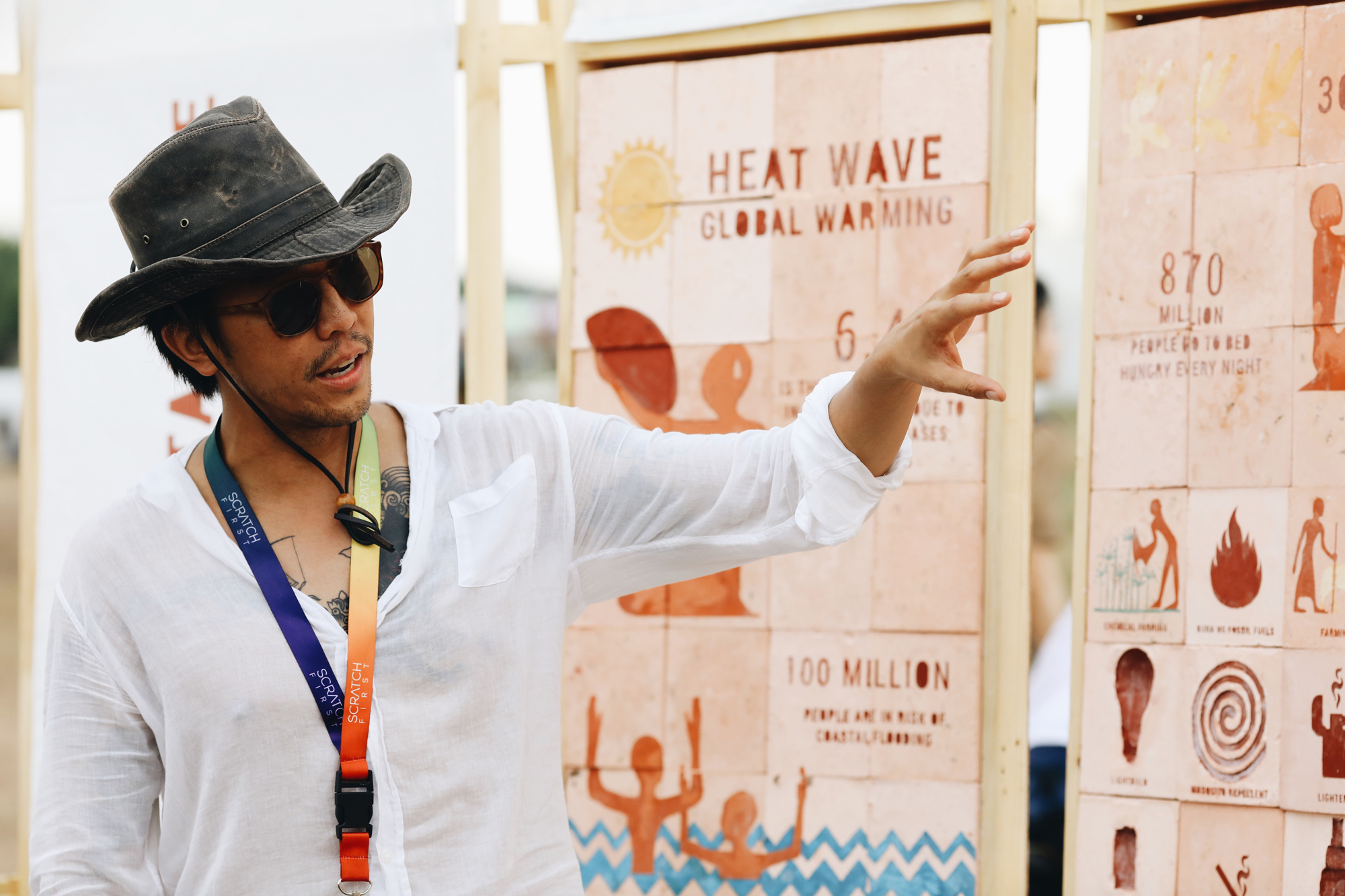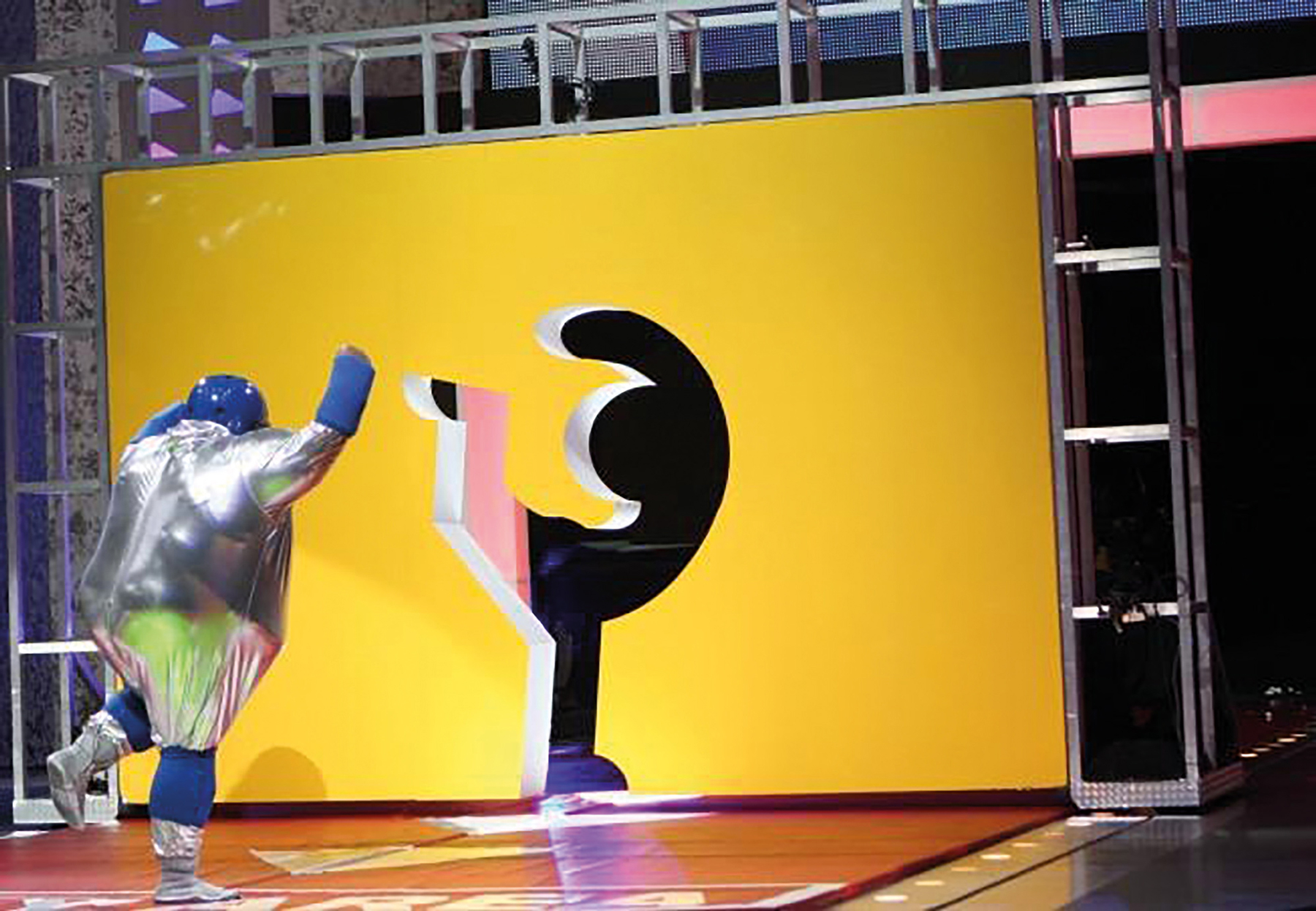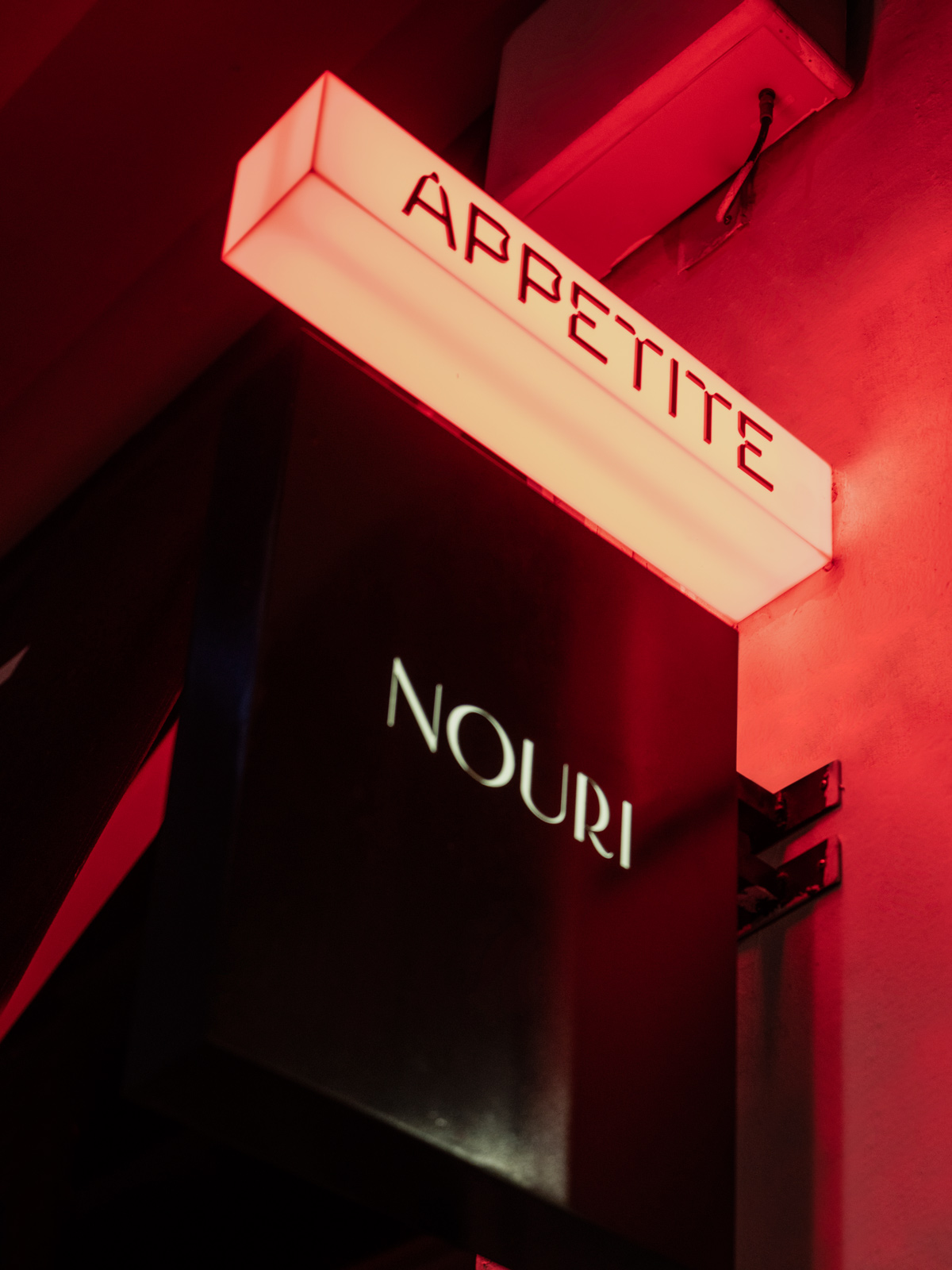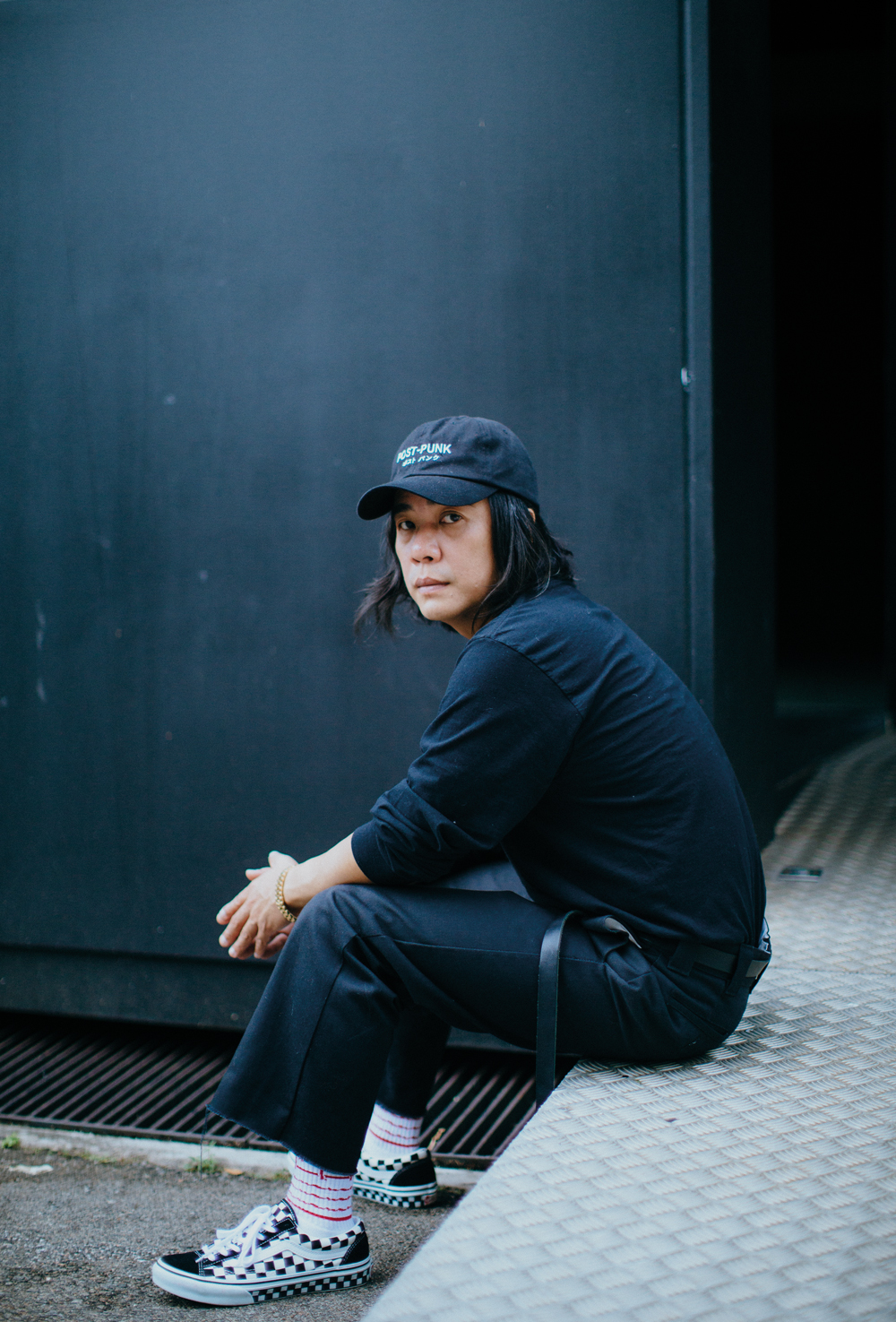For the past four years, visitors from all the world over have flocked to the fields of Thailand, abandoning their troubles for several days of celebration and merriment at Wonderfruit Festival. An arts, music and lifestyle festival focused on creating awareness and action for sustainability, Wonderfruit is often compared to the more radicalised Burning Man, or similarly-vibed Coachella, with an emphasis on local practices. Inspired by founder Pranitan Pete Phornprapha’s attendance of Secret Garden Party, an independent music and arts festival located in the United Kingdom, Phornprapha and co-founder Montonn Jira realised that a festival could be the ideal medium to fully explore the sustainable movement through positive engagement.

Wonderfruit’s commitment to sustainability is not simply a slogan, but an ethos that underpins the entire operation of the festival. Wonderfruit is powered by its own generators, utilises its own water filters to quench festival-goers’ thirst, and prides itself on being carbon-neutral. The artwork commissioned and the infrastructure built for the festival emphasises local Thai traditions of sustainable farming. A recent iteration of Wonderfruit featured a staggering stage constructed with bamboo and rice, fully recyclable—through consumption or otherwise. Even so, in speaking with Phornprapha, he acknowledges that there are areas of the festival which he wishes could be improved. “Power consumption and the innovative technology around that,” Phornprapha indicates, as a method he would like to implement, “and ways of applying natural permaculture techniques to the land.”
Phornprapha’s evolution of Wonderfruit is more complex than putting on a more efficient, more exciting event. Phornprapha believes in Wonderfruit as not just a music festival, but a social movement. “In order to create real change, I believe that a strong stance needs to be taken on things we believe in. We are, in ways, protesting against the current situation, but trying to do it seamlessly.” Similar to Burning Man, Wonderfruit has a policy of not displaying corporate logos at the festival. They do, however, welcome any sponsors who are willing to work with them in a way that initiates sustainability. It would be easy to take this as a way of selling out, but certainly, to Phornprapha, the rationale behind corporate sponsorship is one that empowers the movement. “A lot of corporate leadership have the right intentions in mind, in terms of sustainability,” he notes, “and that steers the direction of the corporation. [Wonderfruit] serves as the platform to bring these common goals together. I do think that exposing and being accountable for each other’s sustainable actions can create a more positive impact, while being economically successful as well. And the consumers will appreciate this more.”
When part of the conversation about sustainability as a movement involves a discussion of capitalism, mass production and the impact of industrialisation on our planet, Wonderfruit does not shy away from acknowledging that consumerism is part of the way the world functions today. Rather, as with corporate sponsorship, and with offering payment to their artists and collaborators through cryptocurrency, Wonderfruit mobilises economic systems for the betterment of sustainability. Phornprapha elaborates that “the technology surrounding cryptocurrency, and the way it is being applied is of huge interest to us. With the right intention, it can really be used for mass participation of solving large scale problems. That is attractive to us, and really aligns with our ethos. It is creative, innovative and impactful.”
"TREEs or other natural capital, for example, is such a strong, simple idea that needs to be spread. There is probably no other scenario that is more beneficial to mankind in the long term than to protect and enrich the environment."Pete Phornprapha
The cyptocurrency in question, TREE, is tied unit for unit to a specific mangrove tree in Myanmar, and its dollar value is determined by the tree’s natural ability to reduce climate gases, thus tying it economically to carbon rights. “TREEs or other natural capital, for example, is such a strong, simple idea that needs to be spread. There is probably no other scenario that is more beneficial to mankind in the long term than to protect and enrich the environment.” And Phornprapha certainly puts his cryptocurrency where his mouth is: some of the proceeds from Wonderfruit, also made through selling exclusive beverages during the festival, have been going towards helping to plant these mangroves, and supporting the local communities involved in their care.







To Phornprapha and his team, it is clear that Wonderfruit cannot be separated from the actual exercising of sustainable practices. At the same time, Wonderfruit is more than a vehicle for activism. “In order to create real change,” Phornprapha states, “I believe that a strong stance needs to be taken on things we believe in. We are in ways, protesting against the current situation, but try to do it seamlessly.” This seamlessness is situated between celebration and creating awareness. Using art, music and other events such as yoga sessions, Wonderfruit suggests a strong link between celebration, creativity and sustainability. “It’s about progression,” Phornprapha indicates of this link. “Whether through personal growth or community. Also, I think people want to celebrate without guilt.”
And celebrate, they do. Wonderfruit pulls no punches with its message of social responsibility, nor with its fervent celebration of sustainable practice. When asked if he thinks Wonderfruit has heightened awareness about sustainability, Phornprapha says that “what we have seen is that other events have prioritised their sustainability initiatives, which is great. From a community point of view, we can see that people are becoming more comfortable to think and take action about these things.”
In a time where the awareness of social responsibilities—towards each other, towards our environment, towards our history and culture—is heightened and seriously discussed, not just with gravitas, but in serious, high-tension environments like protests and seminars, Wonderfruit is an opportunity for its audience to discuss and experience sustainability through positivity and community. “Being sustainable not as an option, but as the de facto standard, and having lots of fun has always been how we create content.” Perhaps Phornprapha explains the magic of the festival best: “[Wonderfruit] creates a comfortable environment where sustainable initiatives aren’t forced down upon you, but integrated into the experience. Once people are comfortable, then I think it allows for lots of fun.”





